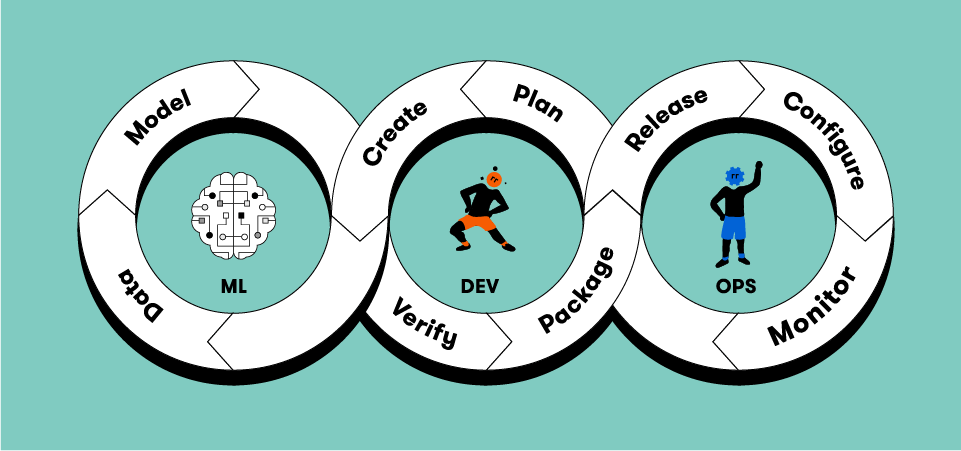
What is MLOps?
MLOps, short for Machine Learning Operations, is a dynamic and evolving field within the realm of artificial intelligence and software development. Although various cloud service providers may offer their own nuanced definitions of MLOps, a common thread runs through these interpretations.
At its core, MLOps represents a comprehensive set of practices designed to seamlessly integrate the development (Dev) and operational (Ops) aspects of machine learning (ML) systems. The primary objective is to enhance workflow efficiencies by establishing standardized processes that facilitate the swift and dependable creation, testing, deployment, and operation of ML systems.
The convergence of Dev and Ops in the MLOps paradigm addresses the unique challenges associated with machine learning, which often involves iterative development, experimentation, and continuous improvement. By breaking down silos between different stages of the ML lifecycle, MLOps seeks to create a collaborative environment that fosters synergy among data scientists, developers, and operations teams.
Key components of MLOps
- Standardized Processes: MLOps emphasizes the establishment of standardized and repeatable processes throughout the ML system’s lifecycle. This not only streamlines development but also ensures consistency and reliability in deployment and operations.
- Automation: Automation plays a pivotal role in MLOps by reducing manual intervention and automating repetitive tasks. This includes automating model training, testing, deployment, monitoring, and scaling to enhance overall efficiency.
- Continuous Integration and Continuous Deployment (CI/CD): MLOps borrows from software development methodologies such as CI/CD to enable the continuous integration of new ML models and their deployment into production environments. This iterative approach accelerates the development cycle and allows for the rapid delivery of improvements.
- Collaboration: MLOps encourages collaboration among cross-functional teams, including data scientists, developers, and operations professionals. This collaborative spirit ensures that insights from each domain are leveraged to optimize the entire ML workflow.
- Monitoring and Management: MLOps places a strong emphasis on real-time monitoring and management of ML systems in production. This involves tracking model performance, addressing issues promptly, and adapting to changing data patterns or requirements.
- Scalability: As ML systems evolve, MLOps accommodates scalability requirements by providing mechanisms to efficiently scale infrastructure, handle increased workloads, and manage resources effectively.
In essence, MLOps represents a holistic approach to managing the complete lifecycle of machine learning projects. By fostering collaboration, standardizing processes, and embracing automation, MLOps empowers organizations to deliver high-quality ML solutions with increased speed, reliability, and adaptability. As the field continues to evolve, MLOps frameworks and best practices will likely adapt to the unique challenges posed by the rapidly advancing landscape of machine learning technologies.